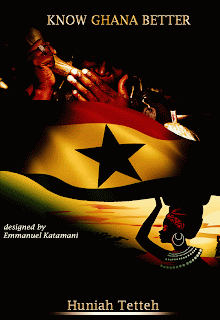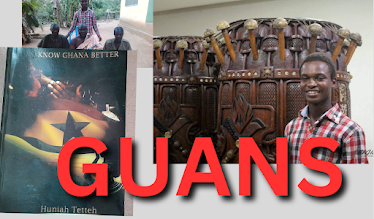THE COMPLETE LIST OF LANGUAGES SPOKEN IN GHANA
During my Ghana tour in writing the book, KNOW GHANA BETTER, I had encounters with several different languages and I thought it wise to share with you all since it may be very necessary. But mind you, this article is copyright protected so please, do not extract this information for selfish gains without seeking permission from the author of the book KNOW GHANA BETTER and the administrator of these Youtube channels, Huniah-Yourhighness Tv and DISCOVER GUANS WITH HUNIAH.
Now, the total list of languages could be debatable for the fact that there are dialects within languages and some dialects could be seperate languages on their own. Thus, in this writeup, I only present the raw facts as I have found them and it is up to the reader to make his/her own judgements.
1. Ga
2. Dangme (dialects: Klogbi (Krobo), Gbugblã (Prampram), Ada gbi)
Cental Region
3. Fante (dialects: Gomoa, Agona, T'di Fante, Wassa)
4. Efutu (dialects: Senya, Simpa)
5. Awutu
Western & Western North Regions
6. Nzema (dialects: Evalue, Gwira etc.)
7. Pepenza
8. Ahanta
9. Sefwi
10. Anyin (dialects: Brosa, Sanvi, Indenie (Ndenye), Bini, Bona, Moronu, Juablin, Abe, Barabo and Alangua.)
Volta Region
11. Logba-Ikpana
12.Avatime-Siyase
13. Tafi-Tegbor
14. Ewe (about 20-32 dialects spoken across the various Ewe communities)
15. Nyagbo-Tutrugbu
Oti Region
16. Sele-Sanko
17. Krachi
18. Bowire (a.k.a Tora or Tuwuli)
19. Gikyode
20. Gidere
21. Ikposso (dialects: Logbo, Ama, Iviu, Ewi and Ikponu)
22. Ntrubo-Delo
23. Kotokoli
24. Basari (dialects: Ntsam & Bejali)
25. Likpe (dialects: Sekpele, Sekwa, Setungbale)
26. Siwu (dialects: Akpafu, Lolobi)
27. Nkonya
28. Lefana (a.k.a Lelemi or Buem)
29. Chala
Ashanti Region
30. Twi (dialects: Asante, Akyem, Kwahu, Worawora, Akuapem-Twi, Bono, Denkyira)
31. Hausa
Eastern Region
32. Akuapem-Larteh (variant Anum-Boso)
33. Akuapem-Kyripon (a.k.a Mentemente or Ekri) - variant Anum-Boso
Bono Region
34. Ligbi/Ndwera/Dyula/Jula/Ntore kasa
35. Nafaanra (dialects: Fantera and Mpantera)
Bono East Region
36. Ntsumburun (dialects: Yeji Ntsumburun and few other dialects)
37. Dwan
38. Wiase (spoken by Wiase, Bantama & Nframa)
39. Kulango (a.k.a Badu)
40. Basa
41. Deg a.k.a Mo
Savanna Region
42. Safalba
43. Hanga (variant of Dagbanli)
44. Templima (dialect: Chakali)
45. Gonja (dialect: Kplan, Dompo)
46. Vagla
47. Kamara (a variant of Mampruli spoken at Larabanga)
Northern Region
48. Nawuri
49. Koma
50. Kokomba (dialects: Likpakpaln, Linafeel, Lichabɔl, Ligbenl, Limonkpenl, Likoonl)
51. Dagbanli [dialect: Nayaali and other minor dialects]
North-East Region
53. Chakosi a.k.a Anufo
54. Moar a.k.a Bimoba
55. Moshi a.k.a Mori
56. Mampruli
Upper-West Region
57. Chakali
58. Dagaare (dialects: Nandom, Waala)
59. Sisaala (dialects: Paasaal, Gibalga)
60. Birifor
61. Lobi
Upper-East Region
62. Bisa (dialect: Barka, Lebri and Lere)
63. Talni (spoken by the Talensi people)
64. Gurune
65. Nabit
66. Kantonsi
67. Kusaal (dialect: Agole and Toende)
68. Kasem
69. Nankani
Others
70. English (Official)
71. Ghanaian Pidgin English
72. French (Co-official)
73. Arabic
74. Bawule (now in Ivory Coast)
75. Adamorobe Sign language
76. Fulfulde a.k.a Fulani
77. General Ghanaian sign language
# Bawule is a variant of Nzema/Anyin languages spoken in the Ivory Coast.
Should you wish to produce this article in any manner, write to the author/producer of HUNIAH-YOURHIGHNESS TV on YouTube via the Email addressing system on YouTube.







I think this is very helpful idea
ReplyDeleteThank you very much
DeleteHausa is spoken all over the place. Trade language in the north (particularly north east) , language of transport workers and market people generally.
ReplyDeleteBissa (thus the speakers prefer it to be called) is mainly found in Upper East and the North East Regions (note the Regions have been changed : https://en.wikipedia.org/wiki/Regions_of_Ghana ).
Hanga and KaMara are independent languages, and not closer to Dagbani/Mampruli resp. [Naden, Tony 1999. Notes on the KaMara of Larabanga. Gur papers/Cahiers Voltaïques 4 : 75-89]
Kantoosi people are in various places in the northern area. The main centre of the language we have found is at Sandema. The Kantoosi of Mampurugu no longer speak their language.
[my authority : PhD was on Bissa, lived in Ghana for 40 years, 30 in Mamprusi area : paper on Kantoosi held up by lack of time on the part of co-authors who collected the data] -- best wishes: Tony Naden
- Bissa is French spelling and Bisa is the English spelling.
Delete- I have been to the north myself and you cannot say that Kamara developed on its own. Even the people of Larabanga admit they are Mamprusi descents. Together, Hanga, Mamprusi, Kamara and co are Mole Dagbon languages and it means they have one ancestor although they may have developed separately
But then Fante is much closer to Asante (especially if you already subsume Akuapem-Twi into 'Twi'), many people like to refer to "Akan" to make that grouping stronger. This classification is certainly more accepted than the outdated diminishing of all the Western Oti-Volta languages as 'dialects of Mole Dagbon', or its more modern version seeking to counterweight 'Akan' by making them dialects of 'Mabia'.
DeleteThese things are very tricky, and speaker self-identification and outsider comparison of linguistic forms are often at odds. The criterion of intercomprehension is important, but difficult to research because of general multilingualism between languages that are certainly distinct.
Anyway, thanks for your presentation which is certainly more comprehensive and accurate than most popular treatments of the subject.
Tony Naden,
DeleteHanga and Kamara, and Zantansi are not independent of Dagbanli. Same as Tomosili, Nayahali, and Nanunli are all dialects of Dagbanli. Even Dagbanli and Mampruli are not independent of each other. For example, the Mampruli in Nasia is almost Dagbanli, whereas the Dagbanli of far-north Dagbon is similar to Mampruli.
The Yidan Moli, head of clergy at the Gbewaa Palace, is of Kamara heritage. The Kamara areas, and the Bouna of Ivory Coast, likely got separated from mainland Dagbon during the Gonja invasion of Dagbon in the 17th century. There seem to be a horizontal east-west continuum of dialects from Togo through Ghana to Bouna of Ivory Coast. But after Gonja invaded Dagbon, the continuity was broken.
That could explain why Gonja is the only non-Mabia (Mole Dagbon) language of Northern Ghana.
The introduction of the Mabia supercluster is right, and I agree that these things are very tricky.
Well done. I have never known that the people of Tungba in Likpe refer to their dialect as Setungbale. Thanks for the education.
ReplyDeleteWhich language do the Chala speak and are they guan's
ReplyDeleteChala's are not Guan's and their language is Chala
DeleteVery interesting piece . It's high time people respect the ikposo language . Some so called akans wants to overshadow us but history will not let them.
ReplyDeleteThe writing Mole Dangbani is a bit challenging but my reseach shows it is rather Moree Damgbane from the Moree or Moshie stock of languages.
ReplyDeleteMoreover, why can't we stop writing our local languages from English perspective? Let us come together as Ghanaian linguists and use IPA to write a common alphabet for our languagesto make them more perfect tonal languges that they are.
Twi should become Tsui, Kyrepon as Tsirepɔŋ, Adwene as Adzuine etc.
Dominic Kpeiku
Catholic University
+233208244220
Nice article beautifully written and well researched
ReplyDelete